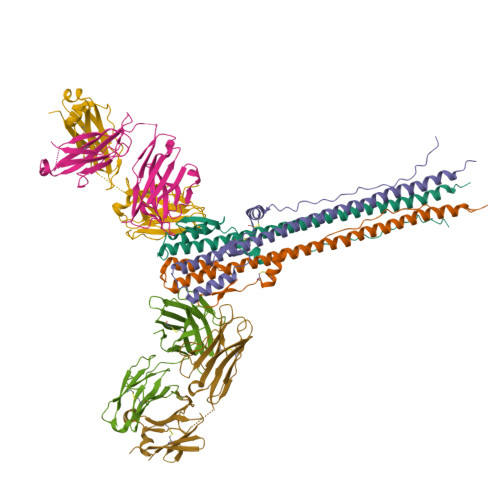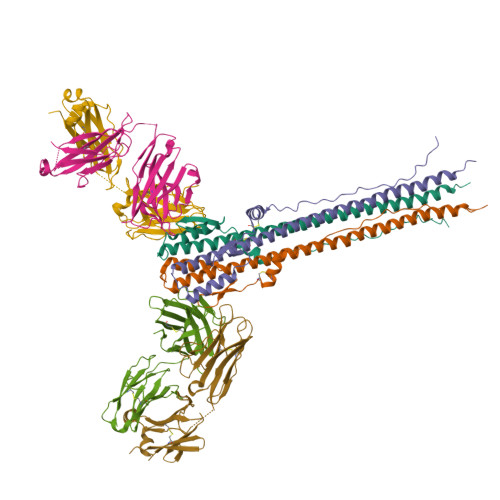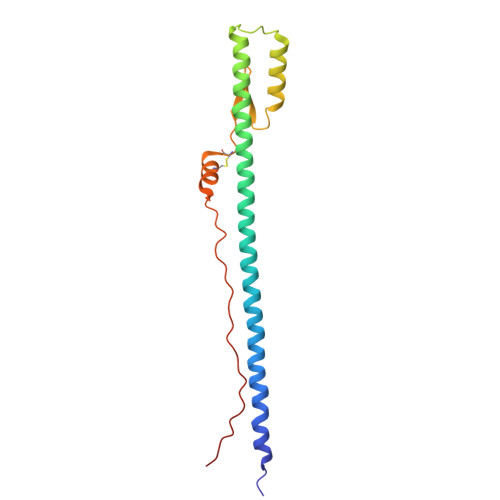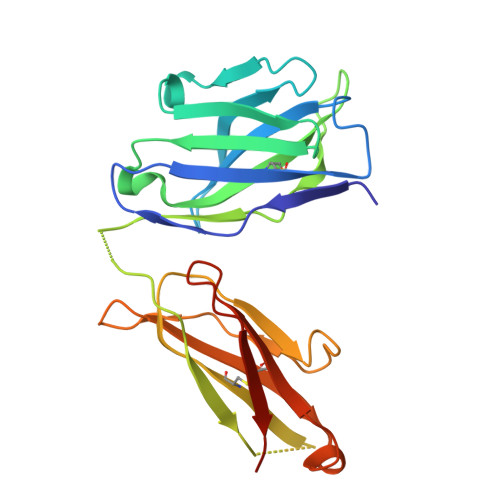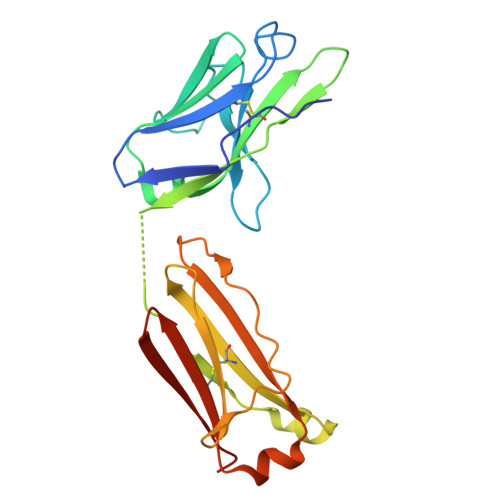Protective human antibodies against a conserved epitope in pre- and postfusion influenza hemagglutinin.
Finney, J., Moseman, A.P., Kong, S., Watanabe, A., Song, S., Walsh Jr., R.M., Kuraoka, M., Kotaki, R., Moseman, E.A., McCarthy, K.R., Liao, D., Liang, X., Nie, X., Lavidor, O., Abbott, R., Harrison, S.C., Kelsoe, G.(2024) Proc Natl Acad Sci U S A 121: e2316964120-e2316964120
- PubMed: 38147556
- DOI: https://doi.org/10.1073/pnas.2316964120
- Primary Citation of Related Structures:
8UDG - PubMed Abstract:
Phylogenetically and antigenically distinct influenza A and B viruses (IAV and IBV) circulate in human populations, causing widespread morbidity. Antibodies (Abs) that bind epitopes conserved in both IAV and IBV hemagglutinins (HAs) could protect against disease by diverse virus subtypes. Only one reported HA Ab, isolated from a combinatorial display library, protects against both IAV and IBV. Thus, there has been so far no information on the likelihood of finding naturally occurring human Abs that bind HAs of diverse IAV subtypes and IBV lineages. We have now recovered from several unrelated human donors five clonal Abs that bind a conserved epitope preferentially exposed in the postfusion conformation of IAV and IVB HA2. These Abs lack neutralizing activity in vitro but in mice provide strong, IgG subtype-dependent protection against lethal IAV and IBV infections. Strategies to elicit similar Abs routinely might contribute to more effective influenza vaccines.
Organizational Affiliation:
Laboratory of Molecular Medicine, Children's Hospital, Harvard Medical School, Boston, MA 02115.








